A Dynamic & Effective Approach of Teaching "DEIB" Diversity, Equity, Inclusion, & Belonging Trainings
If you've ever sat through a stale presentation on diversity training, you know just how little a purely academic approach to the subject can impact audiences. At CCC, Principal Facilitator Greg Taylor takes an innovative, collaborative and experiential approach to his training. By pulling participants into authentic interactions and encouraging a deeper level of understanding when it comes to the social divisions in personal, professional, and community environments, Greg's inclusivity training works to transform your organization's internal engagement, from the conceptual level to the pragmatic, day-to-day practice of working together.
|
|
|
New Workshops
|
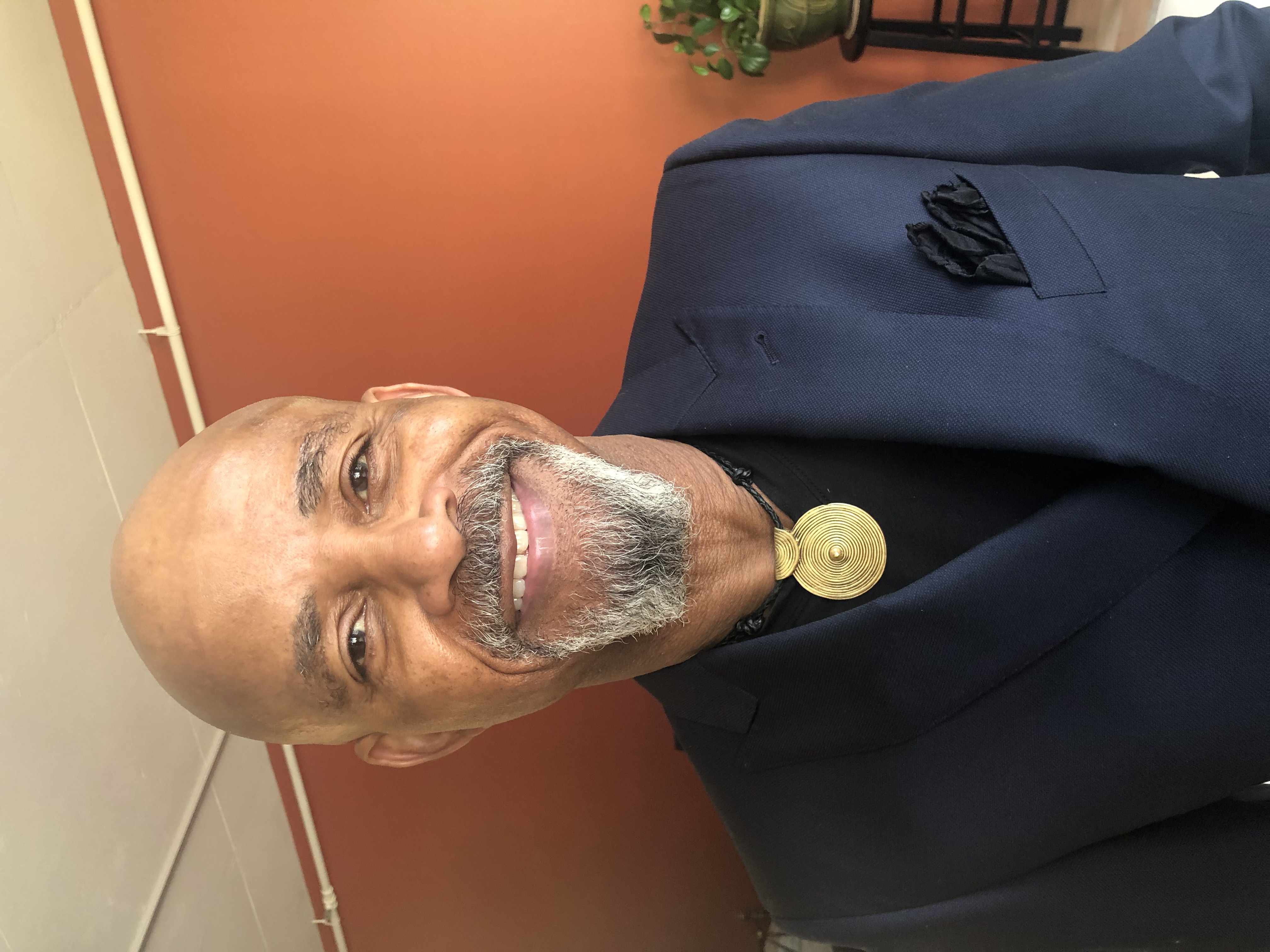
" I appreciate Greg as a trainer , he is clear and communicates concepts well "
"I enjoyed the very plain talk about the reality of racism, bias in our culture, rather than trying to be diplomatic"
Participants
|
White Allyship Transformation: Advocate, Ally, Abolitionist, Accomplice to Co-Conspirator
Throughout this country’s history, there have been anti-racist white people who stood against the dehumanization, enslavement, exploitation of Africans, and the genocide and theft of land of Indigenous People. They were white advocates, allies, abolitionist, accomplices, and co-conspirators. And despite being grossly outnumbered by most racist, immoral, hateful, and pernicious white people, they decided to fight for full freedom, equality, and inclusion during a violently hostile epoch that was savagely oppressing Black and Indigenous Peoples.
This training reminds us of those brave, bold, and courageous white people who during the last five centuries, embraced their humanity by first advocating, and thus becoming, ally, abolitionist, accomplices, and co-conspirators for justice. They risked, some even gave their lives to advance freedom, liberation, and self-determination for Black, and Indigenous Peoples. Today’s racially- charged turbulent times offer new opportunities across all sectors, and throughout every area of people activity (personal, professional, and community networks) for white advocacy, allyship, abolitionism, accomplices, and co-conspirators to take the appropriate actions that finally establishes political, economic, and judicial equity and inclusion for Black, Indigenous, people of color (BIPOC).
During this training participants will develop or expand their understanding on the process of becoming and evolving, from advocate to ally, abolitionist to accomplice, and ultimately, becoming a co-conspirator. These roles all have varying power relational dynamics among BIPOC, and thus varying racial equity impacts across areas of influence. In this training.
|
Participants will:
- Learn of the courageous white allies & abolitionists who knew from America’s earliest history that enslavement, land theft, forced labor, & genocide was horribly wrong.
- Develop or expand their understanding on the process of evolving from advocate to ally, abolitionist to accomplice, and ultimately, becoming a co-conspirator.
- Cultivate a keen awareness of what will be necessary to continue to strengthen, grow and evolve as an effective accomplice and co-conspirator.
|
|
|
Recognizing & Interupting Implict Biases & Microaggressions
Microaggressions - “Brief and commonplace daily verbal, behavioral, or environmental indignities, whether intentional or unintentional, that communicate hostile, derogatory, or negative racial slights and insults toward people of color.”
Derald Wing Sue PhD
These persistent abuses can be experienced across many social identities such as: race, gender, sexual orientation, socioeconomic background, nationality, disability, and religion. It is generally the well-intentioned individual who is most likely to commit a microaggression and thus defend their behavior by explaining their intent, however, intent does not negate nor eliminate the impact.
In this training participants will develop a deeper understanding of the relationship between implicit biases and microaggressions. Through lecture in a historically relevant context, experiential activities, and group discussions, participants will increase their self-awareness in identifying microaggressions while learning how to become an active bystander and interrupt microaggressions throughout all their areas of people activity which includes their personal, professional and community environments.
|
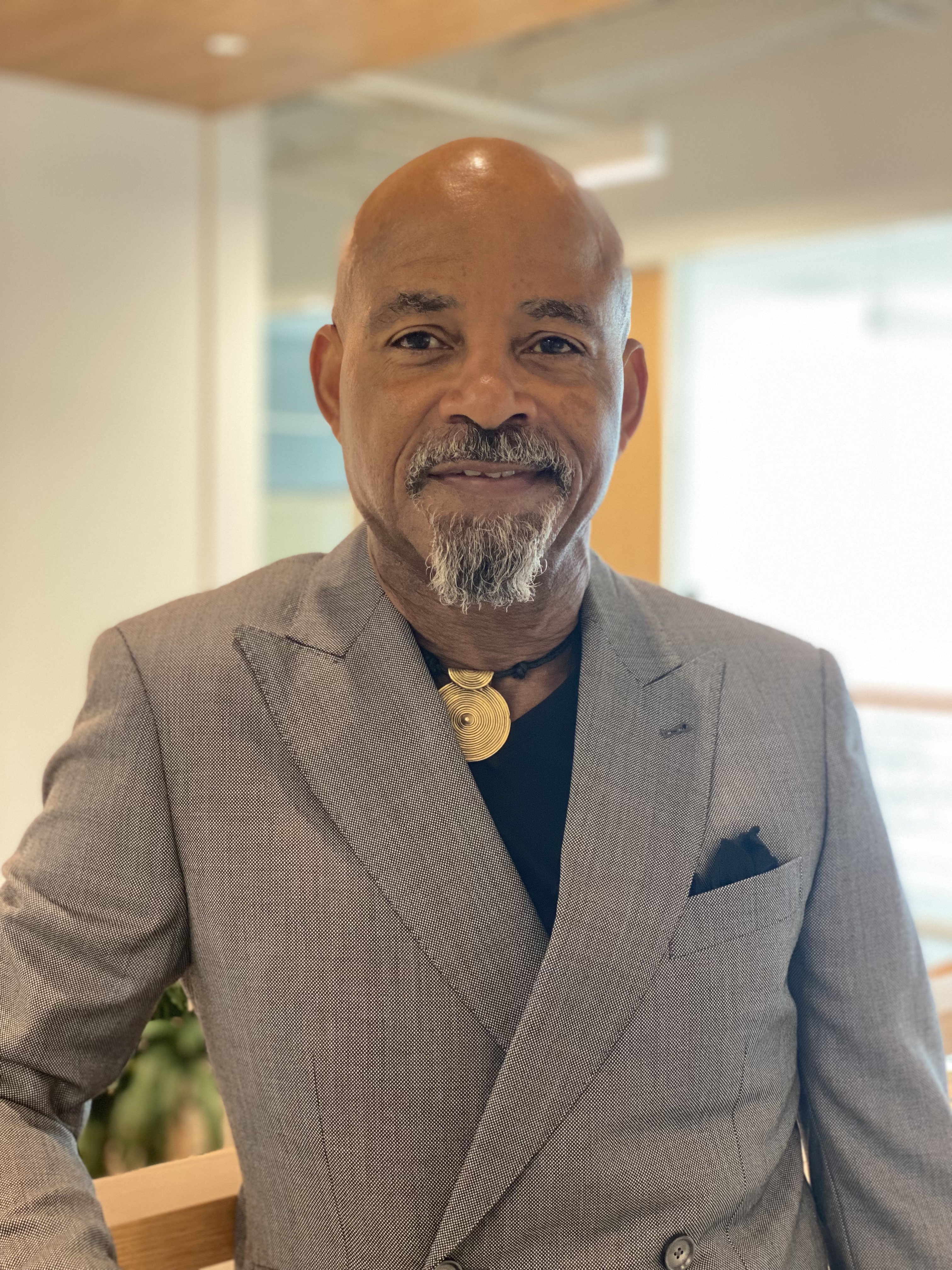
|
|
|
"The workshop provided me a better understanding of microaggressions, and how to recognize them in myself and others ."
Participants
|
Participants will:
- Gain a deeper awareness of the historical root causes of implicit biases and microaggressions.
- Develop the ability to recognize and interrupt implicit biases and microaggressions in their personal, professional and community spaces.
- Cultivate their ongoing understanding and practice to reframe false narratives that perpetuate implicit biases and microaggressions.
|
|
|
 |
Reimagining Racial Inclusion
What if the collective majority of white Americans acknowledged that the cost for authentic racial inclusion required the same intent, energy, effort, and investments that were vigilantly made for a system of racial exclusion imposed for centuries?
In 1883 the Supreme Court struck down the first Civil Rights Act; this ushered in Jim Crow and the Black Codes. Every white man, woman, and child were deputized by state, local, and federal government to have unfettered authority to police and exclude Black people from all forms of public, private spaces, and opportunities.
White people now were given the protection of law, to enforce, policy, societal practices and punish through violence, the exclusion of Black people from equal citizenship, and to be seen as human. Such an awful power to give to people filled with a lust to believe in white racial superiority. This epoch would lead to generations of barbaric dehumanization against Black people and other marginalized groups.
|
Today there are liberal and so-called progressive cries for racial inclusion across all sectors, we conduct trainings, workshops, symposiums, social and political discussions about why and how we can become a more inclusive society. But if we are truly honest, we must reject the narratives that suggest incrementalism is the answer, or that the (BIPOC), who were systematically excluded from equal access and opportunity throughout this country’s history, are expected to put in the same work as those who meticulously constructed exclusive laws and policies in the first place!
What happens when the collective majority of white people accept the fact, that they are the beneficiaries of generations of exclusionary policies, practices, and laws that they say they want to dismantle to create an equitable and inclusionary society? Do they fully understand the real generational cost? Are they prepared to commit to pay the real price for true authentic racial inclusion? In this training,
Participants will:
- Acknowledge the history of racial white supremacy exclusion, cultivated over generations, on Black, Indigenous, and other POC in America.
- Recognize that the imperative of creating authentic, meaningful, equitable inclusion across all sectors will require those who created it (white people), cultivated, & enforced violent exclusion over many generations, must do the heavy lift.
- Learn how to reimagine policies, investment of resources, and effort that it will take towards authentically pursuing equitable, inclusive outcomes across all sectors for all BIPOC and other marginalized groups.
- Identify what you can personally do to cultivate your own action steps as a white ally and abolitionist to eliminate racial white supremacy exclusion.
|
|
|
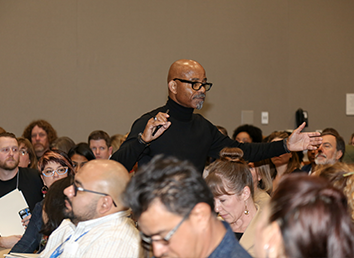 |
A Practical Approach to Antiracism: Principles, Practices, & Policies
In today’s turbulent times, we are persistently and perilously divided and misguided by leaders who choose racist narratives that promote fear, hate, and the oppression of BIPOC (Black, Indigenous, and people of color). America has yet to keep its promise of life, liberty, and the pursuit of happiness equally to BIPOC and, instead, more often has served up inequity, disparity, oppression, and injustice.
At this critical and pivotal time in our history, there is an opportunity for a collective effort to correct the inequities and injustices of the past and present and usher in a more promising future. We can begin this process by learning how to imagine and create anti-racist ideas, principles, practices, and policies as we change our attitudes towards each other and demonstrate that the desire to gain should be more powerful than the fear of loss.
|
In this workshop, participants will learn to identify racist and anti-racist ideas and increase their ability to challenge and interrupt racist principles, practices, and policies that appear neutral on the surface yet hide disparate outcomes for marginalized groups. Participants will experience the historical context that reveals some of our present-day principles, practices, and policies as they were originally conceived, narrated, and instituted. Finally, participants will develop practical skills to imagine and create ideas that lead to anti-racist principles, practices, and policies and to learn how to cultivate their own anti-racist attitudes and behavior.
Participants will:
- Increase their awareness to identify the difference between racist and anti-racist principles, practices, and policies.
- Gain historical insights into why and how racist ideas were designed, framed, narrated, and implemented.
- Develop practical skills on creating anti-racist ideas, principles, practices, and policies.
- Strengthen and cultivate their own anti-racist attitudes and behavior
|
|
|
The Erosion of Empathy:
The Cause, Cure & Cultivation of The Empathy Quotient (EQ)
We all have biases, both implicit and explicit. Everyone has some type of prejudice, including those considered to be the best among us. There are some who have explicit racist, xenophobic, misogynistic, homophobic views, opinions, and attitudes. But, in all of this, many people are simply evil; they exist without care, concern, conscience, empathy, or remorse for black, brown people, and other marginalized groups as they perniciously pursue and dehumanize these groups to justify inhumane legal and illegal acts against them.
|
 |
In his book, Less Than Human: Why We Demean, Enslave & Exterminate Others, author David Livingstone Smith states, to conceive a person or people as being subhuman, “they are imagined to have the essence of creatures that elicit negative responses, such as, disgust, fear, hatred and contempt, and are usually thought of as predators, unclean animals or prey.” Those individuals who believe in dehumanization reflect an absence or erosion of empathy. Today, society increasingly has made it more feasible for individuals such as them to live as though their behavior, attitudes, and actions should be expected and accepted as normal.
In his book The Science of Evil: On Empathy and The Origins of Cruelty, Simon Baron Cohen defines empathy in this way, “empathy occurs when we suspend our single-minded focus of attention and instead adopt a double-minded focus of attention.” He goes on to say that empathy is our ability to do two things at once, first to have the ability to identify what someone else is thinking, feeling, or experiencing, and second, to respond to their thoughts, feelings, and experiences with the appropriate action. There is scientific evidence that we can increase our empathy quotient; it is malleable for most people!
Participants will:
- Learn how to increase self-awareness about empathy and measure their own “Empathy Quotient.”
- Develop skill in identifying the absence of emphatic behavior and attitudes and actions within their personal, professional, and community spaces.
- Understand the reason and need for expanding and cultivating their EQ and why complacency perpetuates the status quo.
- Experience how to courageously confront, interrupt and redirect behavior, attitudes, and actions that reflect the absence of empathy.
|
|
|
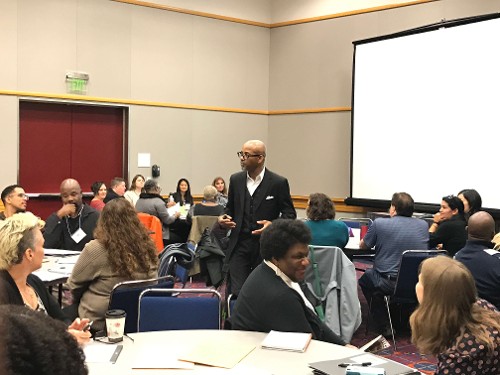 |
The Application of Principled Leadership During Divisive & Turbulent Times
Those who lead by principle do what is right only because it is right, for right and just reasons. They do not consult political correctness on the eve of important decisions. Quite the contrary, they are fully accountable and willing to stand alone if necessary. They simply make the tough call even in the face of unjust pushback and resistance.
|
Everything rises and falls on the hand and helm of some form of leadership. In life, we are all leaders on some level. Someone is always listening to our words and observing our actions to determine if we walk the talk. Who do you view as a mentor and take cues from and why? Who are the bold and courageous leaders that influence, inspire and move you into action for just causes?
This workshop is for those who understand the connection between racial bias, power, privilege, and position that has created and cultivated a mind-bending narrative that has produced the absence of principled leaders among our midst, across all sectors. We need leaders with the courage to challenge status-quo policies, practices, and patterns that continue to promote and foster inequity and oppression and to support actions that promote equity, inclusions, and justice.
Participants will:
- Deepen their understanding of the historical narrative that has been contextualized by a post-genocidal nation founded on exclusion and racial difference.
- Challenge participants to take the personal inventory of their leadership profile and the present and potential impact they have on promoting diversity, equity, and inclusion.
- Broaden their understanding and comprehension to readily identify the key characteristics of authentic, principled leadership and how to effectively practice it in all environments.
|
|
|
Race, Bias, and Dissonance: Understanding How They Intersect With Inequity
At the cornerstone of every organization is the ability to rationally and empathetically process our interactions with others while making sound judgments about the experiences we share with them. Jammed between reason, emotion, and authentic connection, implicit bias, and cognitive dissonance create practical consequences for people of color in the form of equitable access to housing, education, healthcare, and more. Uncover these barriers to equality and effective cooperation with this workshop, available in two parts.
|
 |
Participants will:
- Increase awareness of biases and how they negatively impact people of color.
- Gain deeper insight into how cognitive dissonance influences our behavior & actions.
- Strengthen your efforts of dialogue and conversation as a racial justice advocate.
- Develop greater awareness & appreciation of historical contributions made by people of color.
|
|
|
 |
Race, Bias & Dissonance II:
Beyond Awareness, Into Concrete/Incongruent Action Steps
“Equity and Inclusion at Work” should first easily be recognized, shared, and understood by workers within their work environment, and then felt and experienced by clients, customers, partners, and everyone else that they come into contact with. Equity/inclusion in our personal and community networks, likewise, should reflect the same. Equity is not a garment to be worn in certain places on certain occasions. It must be woven, nurtured, and cultivated into the very fabric of who we are and who we are becoming where ever we may find ourselves in this process!
|
This workshop is part II of “Race, Bias & Dissonance: Understanding How They Intersect With Inequity, that I introduced several years ago. It is an introduction to the concept & connection of racism, implicit bias & cognitive dissonance and how they intersect, operate & support each other through decisions that we make in our day-to-day routines within the workplace, home, and community. In RBD II, we start from the context of knowing and having an awareness of our implicit biases. It is highly recommended that participants take the Race & Gender Sciences, Implicit Association Test (IAT) prior to attending this workshop to maximize their experiential learning opportunities (I provide an emailed attachment with instructions for registered participants).
It is through explicit & conscious understanding and awareness of our implicit, unconscious associations/biases that we are capable of becoming responsible, realizing & knowing why we must join in the collective effort to lay the bricks & mortar of equity/inclusion in building authentic work environments along with personal and community networks of inclusion for all.
Participants will:
- Increase understanding of how to effectively engage in authentic & meaningful dialogue about race in professional, personal & community environments.
- Develop deeper insight in identifying implicit bias & how it impacts equity & inclusion through decisions that we make in our daily routines.
- Gain greater knowledge of the distorted historical context & how it impacts people of color.
- Learn concrete action steps to eliminate systemic oppression through policy, practices & procedures in your workplace, personal & community networks.
|
|
|
Perceptions of Justice: The Separate Realities of the Justice System
The audience will be guided through the findings of the “Justice in Washington State” survey report commissioned by the Minority and Justice Commission, which looked at the perceptions of 1,500 Washington residents and how they viewed the courts and law enforcement, with a particular focus on how race and ethnicity impact those perceptions. The results of the study paint a picture of a racially divided experience of justice in our courts. The audience will learn about some of the reasons behind the racial differences in perceptions and will get a chance to explore with one another and with a panel of judges from the Minority and Justice commission different ideas of what we can do to begin to improve the perception of justice in Washington state.
|
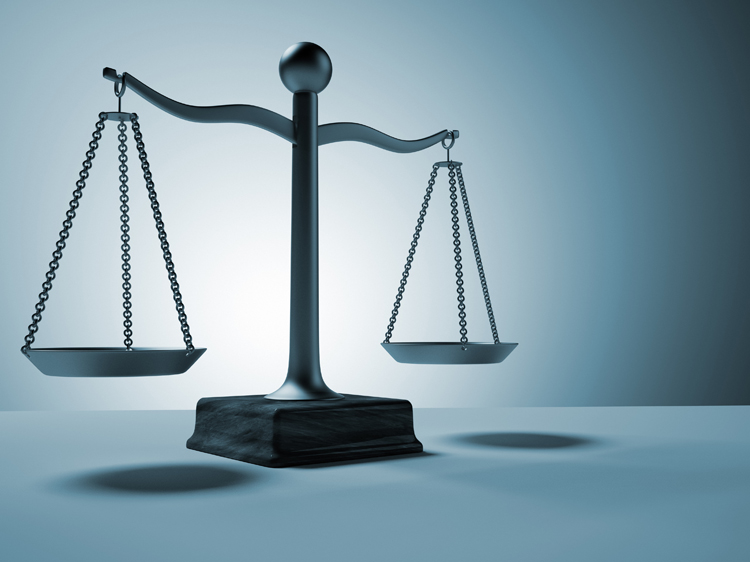 |
The study asks the question of whether there are differences in the way residents of Washington view the justice system (courts and police) based on race. What was found was that race is a big factor in whether those perceptions are negative or positive, with African Americans on one end of the spectrum and Whites on the opposite end. This training is all about perceptions of our justice system, the reasons behind them, the impact of negative perceptions, and discussions and dialogue on how to address these issues.
Participants will:
- Understand why improving the perceptions of the justice system is important and part of their judicial roles.
- Identify the truth behind the perceptions.
- Identify concrete things they can do to improve their own self, court, community, and systems.
|
|
|
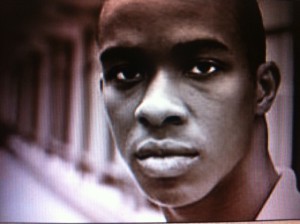 |
Black, Brown & Blue: Youth/Men of Color & The Criminal Justice System
Increase awareness of institutionalized disparity in the criminal justice system that disproportionately incarcerates black and brown men and permanently locks a huge percentage of them out of mainstream society and economic opportunities through panel discussions and interactive learning. By developing an understanding of these issues, you can better accommodate the challenges that your team members may face and improve your ability to work with employees and partners based on commitment and expertise, rather than the false impression given by an unjust system.
|
Participants will:
- Increase awareness of institutionalized disparity in the criminal justice system that disproportionately incarcerates black and brown men and permanently locks a huge percentage of them out of mainstream society and economic opportunities.
- Gain deeper insights into social, economic, and public safety impacts that privately operated prisons have on our communities.
- Learn about the local, state, and federal strategies to reform juvenile and criminal justice policy and how you can participate and get involved.
|
|
|
Immigrant/Refugee Integration: Successful Strategies for Welcoming our New Americans
In this interactive workshop, participants will learn about the barriers that inhibit successful and meaningful immigrant/refugee integration and dialogue into our communities. Participants will experience "The Refugee Project; Walk In My Shoes," an education simulation coordinated by Sandra Vanderpol of World Relief. The simulation includes being transformed into refugees escaping for their lives; participants will undergo mock interviews by immigration authorities, as well as listen to a local refugee's inspiring story.
|
 |
Participants will learn:
- New outreach strategies that strengthen meaningful interaction and engagement between New Americans and receiving community members.
- Communication strategies cultivate and emphasize the positive aspects of a united and diverse community between New Americans and mainstream populations.
- Learn how to engage and encourage the participation of mainstream leaders in efforts that build community among immigrant/refugee populations.
|
|
|
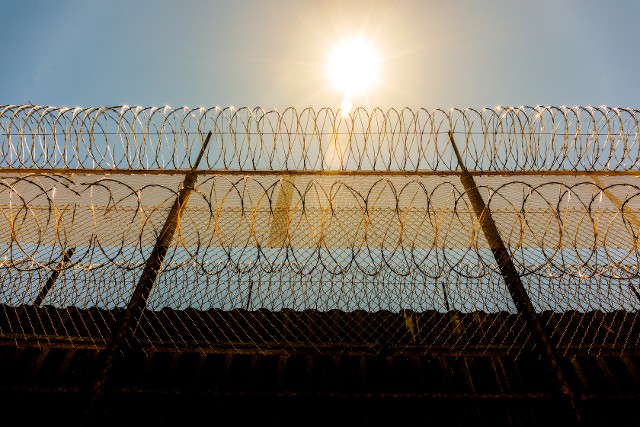 |
Immigrant/Unauthorized Immigrant Integration: How Detainment/Deportation Destabilizes Our Communities
Many people don't know what happens to an unauthorized immigrant that is arrested or apprehended and has no criminal record but had their visa expired, or they entered the country by unauthorized means. There is a shocking reality that most are unaware of that's literally, tragically devastating the lives of people who live and work all around us. Families are severely impacted, and so are our communities.
|
This workshop is for policymakers, administrators, educators, service providers, and those interested in a deeper understanding and perspective on this issue. We all interact with unauthorized people throughout our communities. It is important to raise our awareness if we are to be successful in redefining the narrative about creating safe and welcoming communities for our new Americans, as well as cultivating a political climate for comprehensive immigration reform.
Participants will:
- Gain an increased awareness of how the immigration detention system operates.
- Examine what conversations we need to engage in to reshape the destructive narrative that is being promoted.
- Identify specific steps and actions to take within your personal, professional, and community networks to promote immigration reform policies that work.
- Learn about efforts that they can join and support to assist detainees and their families.
|
|
|
Unpacking the False Concept of Whiteness: Does Anyone Really Benefit?
What is whiteness? A complex concept tied up in the structure of institutional power, the history of colonization, and the justification of centuries of oppression, the simple act of seeing oneself as "white" isn't a coincidental categorization. What's more, our definitions of whiteness harm so-called white communities, in addition to the pernicious impacts they have on communities of color.
|
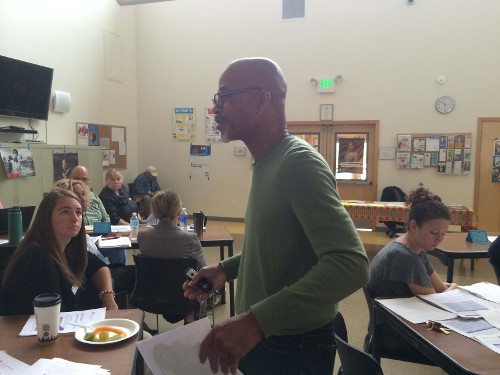 |
Participants will:
- Develop a deeper understanding of the historical construct and cultivation of whiteness.
- Identify the dynamics of whiteness & its cultural dominance that creates adversity for people of color.
- Broaden understanding of how the impacts of whiteness create a deficit for everyone in our society: socially, psychologically, politically & economically.
- Examine what can be done to begin the process of deconstructing the concept of whiteness on an individual, institutional and structural level.
|
|
|
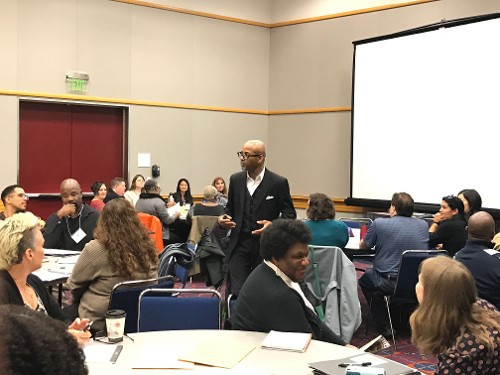 |
Post-Racial America: Are We There Yet? Beyond The Myth, Towards Courageous Change
A major challenge for racial justice advocates today is how do we move the popular understanding of racism and inequity from the narrow view of individual prejudice to the much broader awareness of systemic inequality. Through active learning and panel discussions, participants will gain deeper insights into how different types of racism operate simultaneously in our everyday situations and explore solutions that address systems rather than the symptoms of inequality. During this workshop, participants will also learn strategies that emphasize equity, inclusion, and unity.
|
Participants will:
- Gain more profound insight into how to identify the different types of racism and what to do when you encounter them.
- Learn hands-on strategies for positive social change practice in personal and professional relationships.
- Develop a racial justice leadership lens that succeeds in opening and facilitating non-threatening conversations about race.
- Strengthen your efforts and actions as a racial justice advocate.
|
|
|
An Evidential Analysis of His-Story: A Narrative That Developed & Cultivates Human Oppression
“What passes for identity in America is a series of myths about one’s heroic ancestors.” -James Baldwin.
Throughout much of American history, there is a false narrative that persists in portraying people of color in a diminished, subjugated, and dull light on the stage of human development and civilization. History, however, is as much a concerted construction as any social concept. Discover a purposeful approach to how you conceptualize racial legacies with this workshop, where you will:
|
 |
Examine through critical analysis the historical context that was devised & cultivated to create a deceptive and false narrative that has shaped and framed how black Americans are perceived and treated personally, institutionally, and structurally in the US.
Deepen understanding and comprehension of how this false narrative perpetuates the marginalization and oppression of black people personally, institutionally, and structurally in the US.
Through re-education of African/US history, begin the process of re-evaluating present attitudes, beliefs, and values that have been established through deliberate miseducation and develop a renewed awareness of the importance of doing one's own research and self-analysis on world/human history.
Participants will:
- Examine through critical analysis the historical context that was devised & cultivated to create a deceptive and false narrative that has shaped and framed how black Americans are perceived and treated personally, institutionally, and structurally in the US.
- Deepen understanding and comprehension of how this false narrative perpetuates the marginalization and oppression of black people personally, institutionally, and structurally in the US.
- Through re-education of African/US history, begin the process of re-evaluating present attitudes, beliefs, and values that have been establishing through deliberate miseducation and develop a renewed awareness of the importance of doing one’s own research and self-analysis on world/human history.
|
|
|
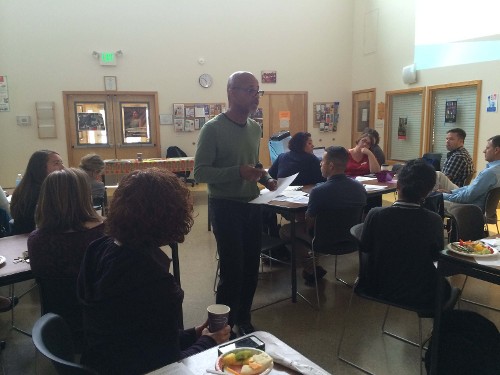 |
Economic & Social Conditions That Impact Health In Low-Income Communities of Color
This workshop is designed to provide participants with understanding and insight into how social, economic, and environmental conditions in communities of color where people live, work and play, powerfully impact and shape health outcomes. You will develop an increased awareness of the inequities of social determinants of health that produce adverse and disproportionate health outcomes in communities of color and learn about national and local strategies that have implemented inclusive, accountable policy decisions that are effective in reducing health inequities experienced by low-income communities of color.
|
Participants will:
- Examine how social determinants cause racial and ethnic health inequities.
- Learn why majority-minority communities are more likely than majority-white communities to face environmental health risks, are less likely to have safe spaces for exercise and recreation, and also face a poorer retail food environment.
- Explore promising strategies that research shows can address the heavy concentration of health risk in communities of color.
|
|
|
|